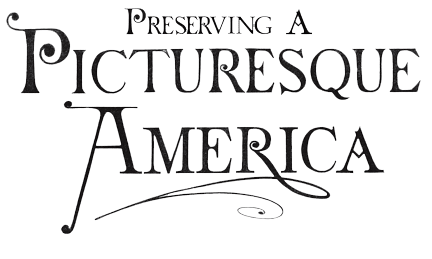
Artist visits Peekskill on cross-country quest to preserve nature through history
Posted on October 13, 2022 by By Regina Clarkin
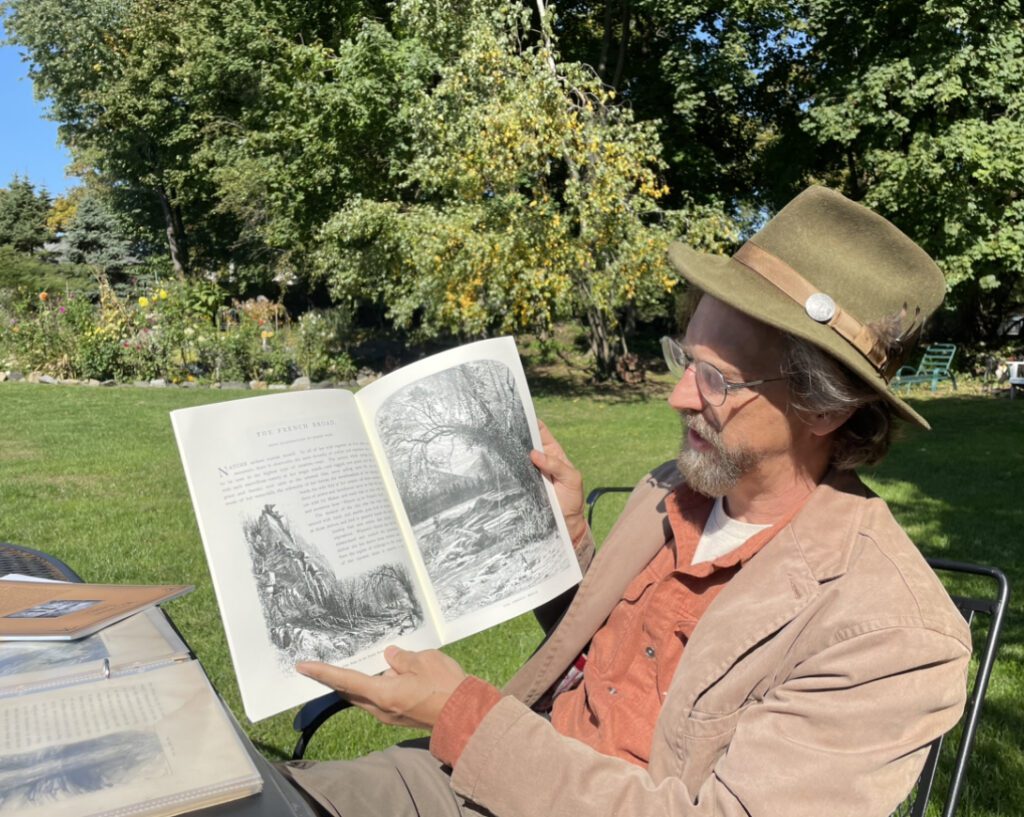
Scott Varn during a visit this week to Peekskill area.
A challenging comment from his 11-year-old son propelled Scott Varn on an exploration that has taken him around the country in an effort to preserve the beauty of America’s landscapes.
His journey led him to Peekskill recently where he found the modern day tableau of two scenes depicted in the mid 19th century magazine Preserving A Picturesque America.
In a conversation with his son one day about 14 years ago, Varn was speaking of the responsibility of ‘stewarding’ the land and preserving what we have. “My son looked at me and said, ‘And what are you doing?’ It hit me hard,” related Varn about what his contributions were. “I recycled, I attended local Sierra Club meetings,” but that was about it.
An artist by profession, whose focus is printmaking, Varn, was always on the lookout for prints depicting his home area outside Asheville, NC. At an online auction house he came across a print of a classic engraving of the French Broad River. He was dismayed to learn when he received it that it wasn’t a print, but rather a page torn out of a periodical called Picturesque America. Intrigued by the words on the back of the print, he discovered Picturesque America was a serial released in 48 parts and then bound into two large volumes with about 1,000 engravings. Further research revealed that Picturesque America played an important role in the preservation of natural lands and historic places in the country.
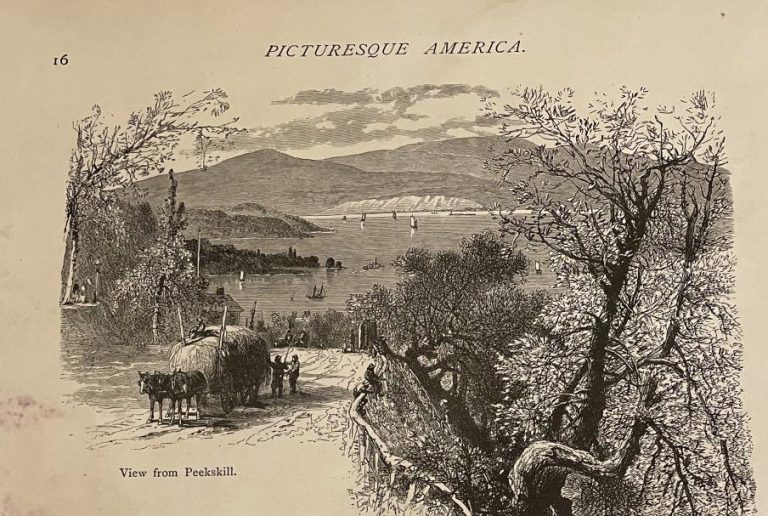
View from South Street of the Hudson in the original 1874 periodical.
Published between 1872 and 1874, the monthly periodical combined travelog, poetry, transcendentalist writings, and images of nature.
This was America’s Reconstruction period, when citizens were war weary and looking for something to rally around, something that could reunite the country, explained Varn. In the 1800’s, images couldn’t be shared instantly like we’re accustomed to today on Instagram or Facebook. Images had to be hand-carved into woodblocks to be reproduced.
“This work got into the hands of so many because it was affordable. It was a time when travel was something only the rich could afford, and Picturesque America gave the general public access to the mostly unknown areas of the country.”
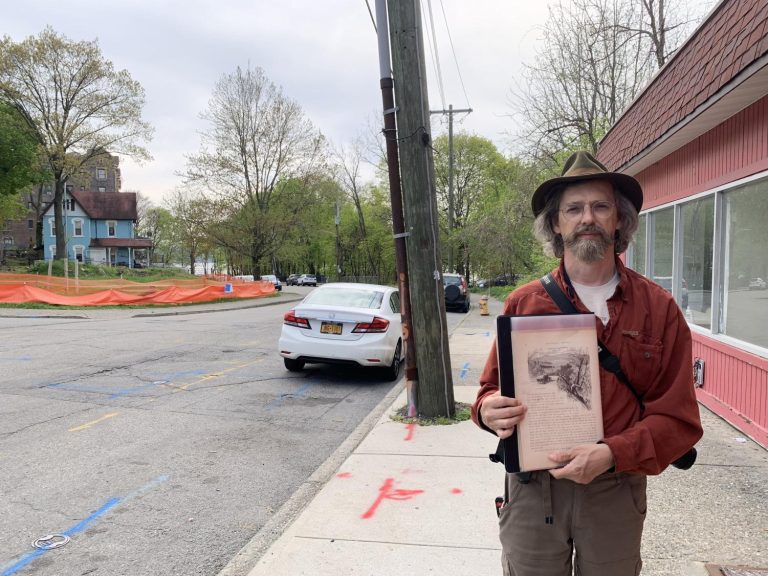
Today’s view of the Hudson from the location on South Street that Varn is holding up in the original 1874 magazine.
Picturesque America was a true influencer, before that became a thing. It predated National Geographic by a decade and a half – with images from painter and printmaker Thomas Moran and poetry by William Cullen Bryant and scores of others.
Once Varn had his hands on a copy of the volume thanks to a rare bookstore in Asheville, he was on the hunt to solve the mystery of some of the images.
“Where is this? I want to find this spot,” he started thinking. “What would 150 years do to the location?” he wondered. “Who else wants to look at what’s in their backyard that was depicted in one of the 48 editions of Picturesque America?”
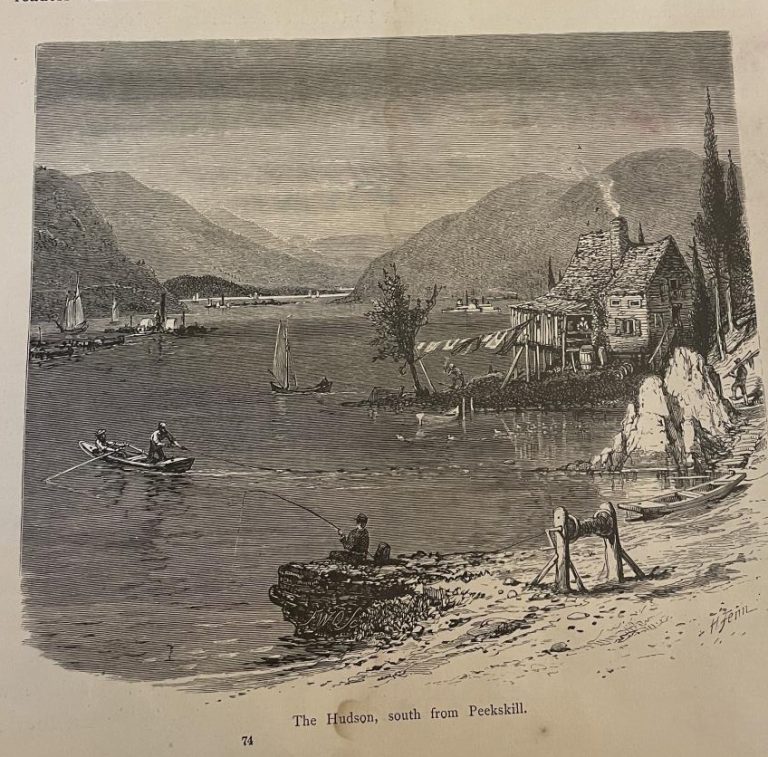
Illustration of the shack on Travis Point in the Preserving a Picturesque America periodical. The shack was owned by a fisherman, at least in later years but is the single most depicted home in the area, from the early 1860’s through photography into the early 1900’s. It had a wonderful setting of being a lone house set against the mountains of the entrance to the Hudson Highlands according to Kirk Moldoff who is preparing a talk about Picturing Peekskill in the 19th Century.
Those questions propelled him to cofound Preserving a Picturesque America (PAPA) and provide an answer for his son concerning his personal involvement in what being a steward of the land really meant.
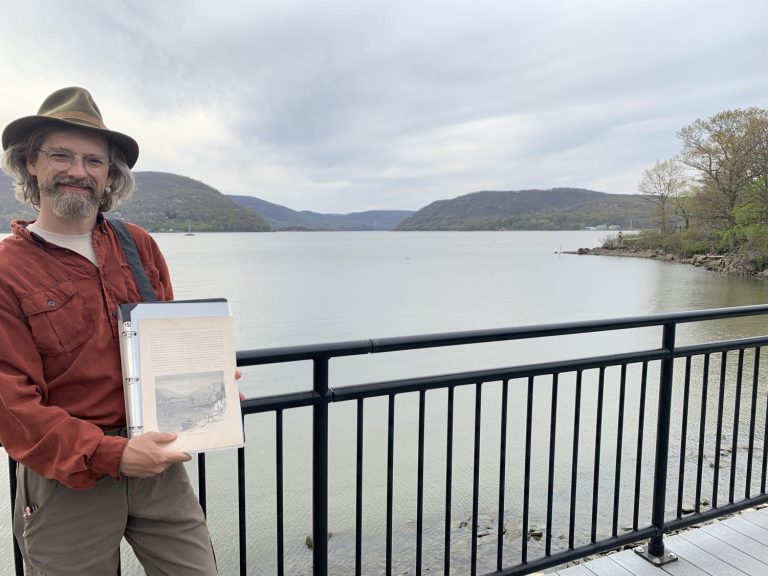
This is the current day view of Travis Point on the boardwalk between Travis and Charles Points.
When Varn found a location in the original book and started sketching it, he said he “drew with what I can only imagine to be the same awe as the original artist.” He realized this could be much more than an adventure of artistic discovery. It could be a way of bringing awareness to the importance of natural wild spaces and give the public a better perspective of what has to be gained by preserving the beautiful places.
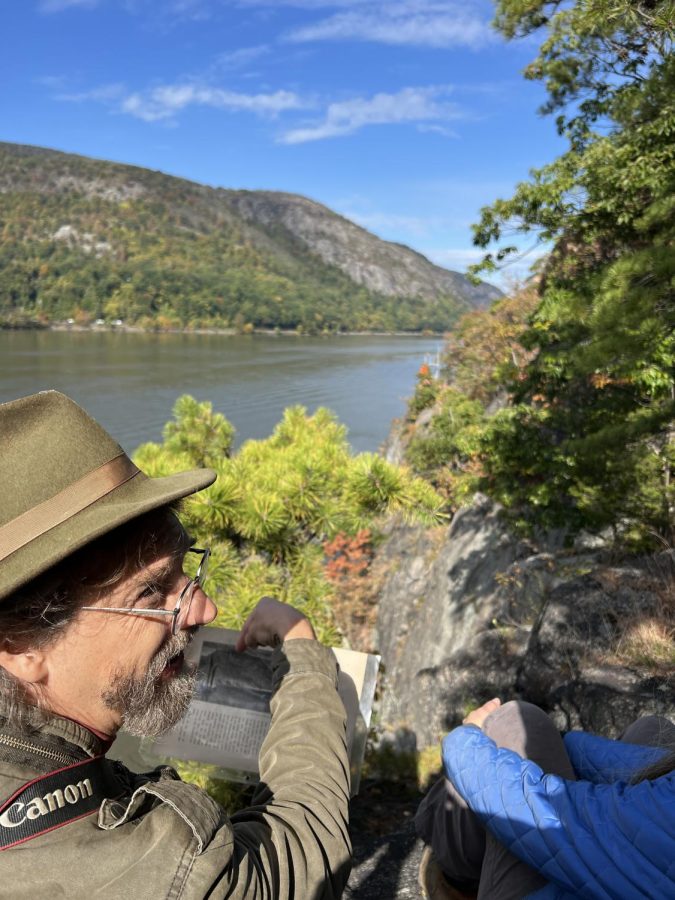
Scott Varn looking towards north towards Cro’ Nest and Storm King from Constitution Island.
Preserving A Picturesque America (PAPA) was formed as a 501c3 nonprofit four years ago and creates local chapters based on the locales featured in Picturesque America. Varn’s recent trip to the Peekskill area was to find local artists and people interested in preserving the landscapes of the Hudson Valley.
In each area Varn visits, a call for artists is issued, inviting them to become a member of PAPA and join a ‘paint out’ where they visit the site and use whatever medium they are comfortable in. Varn stressed that amateurs are as welcome as professional artists. Once images have been painted, there is a show at a gallery and the funds raised go to a local preservation organization.
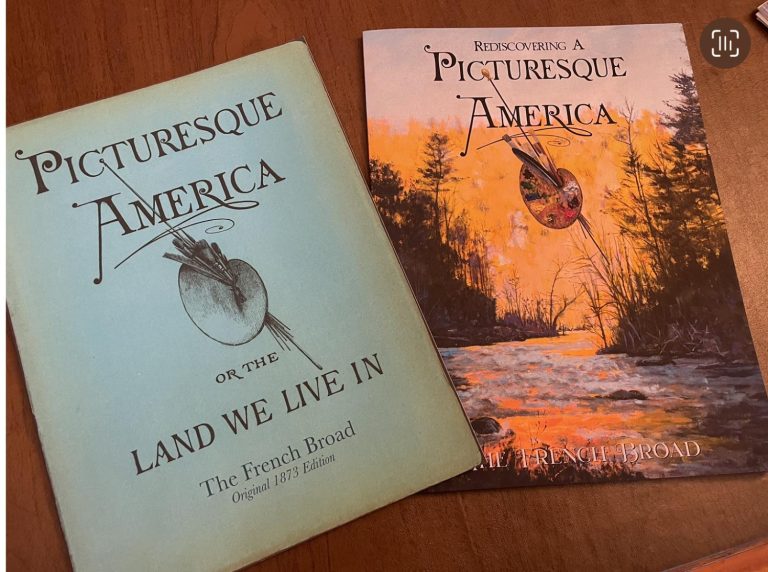
A copy of the original periodical and one from the current day, featuring the Asheville, NC part of the country.
A jury selects a winner from each chapter’s show, and that image is published in a full-color, updated version of Picturesque America.
In the last dozen or so years Varn has visited 311 of the 1,000 sites featured in Picturesque America. In June he traveled to the Catskills with members of the Grand Central Atelier to paint scenes from those mountains. In his early summer visit here he viewed the two scenes from Peekskill that made it into the 1874 edition of Picturesque America. He was thrilled that one scene (Travis Point on the river) remains relatively untouched; the other (South Street) disappoints because of the development that has changed the landscape.
Local historian Kirk Moldoff met Varn at a New York City lecture about illustrator Harry Fenn. It was there that he learned of Varn’s project and offered to show him the areas on the list Varn assembled from the “Highlands and Palisades of the Hudson” that made it into the periodical some 150 years ago.
That challenge issued from a ten-year-old to his father has led to serendipitous encounters criss-crossing America, illustrating to Varn how Americans still yearn for the wild spaces of yesteryear – and their preservation.
Local artists interested in depicting the two Peekskill scenes can reach out to Varn through the website, preservationthroughart.org
